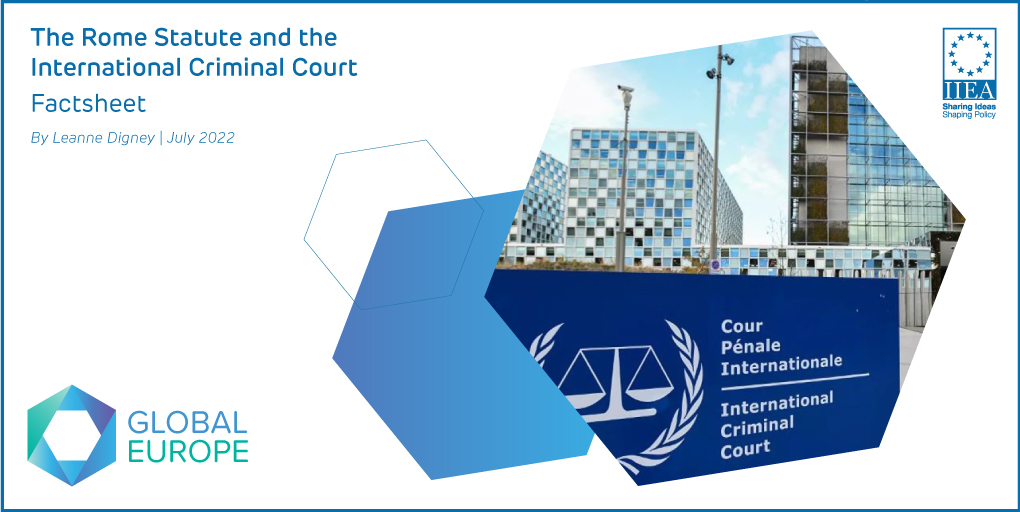The Rome Statute and the International Criminal Court Factsheet

1. What is the Rome Statute?
The Rome Statute of the International Criminal Court is the treaty that established the International Criminal Court (ICC) in the Hague.
2. When did the Rome Statute come into force?
1 July 2022 marked the 20th anniversary of the entering into force of the Rome Statute, which was ratified by Ireland in March 2002. As of July 2022, 123 states are party to the Rome Statute.
3. What is the difference between the International Criminal Court (ICC) and the International Court of Justice (ICJ), both of which are located in the Hague?
The International Court of Justice is a civil court that hears disputes between countries. The ICC is a criminal court that prosecutes individuals.
4. What is the scope of the Rome Statute?
Under the Rome Statute the ICC has jurisdiction over four categories of the most serious crimes of concern to the international community; genocide, crimes against humanity, war crimes and crimes of aggression.
5. When does the ICC have jurisdiction?
The ICC only has the power to investigate and prosecute crimes committed after 1 July 2002 and in four specific cases:
- If the crime took place in a country that is party to the Rome Statute.
- If the crime was committed by a national from a country that is party to the Rome Statute.
- If the crime was committed by, or on, the territory of a state which is not party to the Rome Statute, which has accepted the ICC’s jurisdiction.
- If the crime was referred to the ICC Prosecutor by the UN Security Council.
6. What is the advantage of a ‘State Party referral’?
A State Party referral is when any country that has ratified the Rome Statute (making them a State Party) refers alleged atrocity crimes to the ICC Prosecutor. Under ICC rules, a referral from member states means that the prosecutor does not have to get the approval of ICC judges before opening an investigation thus speeding up the process.
7. What is a war crime?
A war crime refers to an act carried out during a war that violates international rules of war and gives rise to individual criminal responsibility. The relevant crimes are listed under Article 8 (2) of the Rome Statute.
8. What is meant by crimes against humanity?
Crimes against humanity refer to acts committed as part of a widespread attack directed against any civilian population. These acts do not need to be linked to an armed conflict and can also occur in peacetime. Article 7 (1) of the Rome Statute details these offences.
9. What is genocide?
Genocide refers to actions deliberately committed with the intent to destroy a particular national, ethnic, racial or religious group. The relevant offending acts are listed under Article 6 of the Rome Statute.
10. What is a crime of aggression?
The crime of aggression refers to the planned use of armed force by one state against another state’s sovereignty, territorial integrity or political independence, the scale of which contravenes the Charter of the United Nations. This crime is dealt with under Article 8 bis (2) of the Rome Statute.
